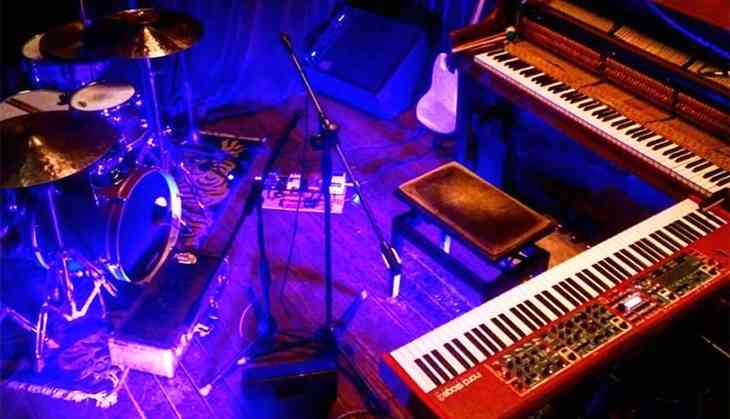Answers to 8 rude questions posed by upper castes post Delhi jazz club fiasco

It takes many years of unchecked privilege for a music band to bear a name that's a casteist slur, and perhaps many more to consider 'I don't know caste' as a viable excuse.
And yet, people are buying it.
On 2 June, South Delhi's posh-and-sophisticated The Piano Man Jazz Club posted an event dated 5 June. The performers for the night were a band called 'Bhangijumping', a play on the word bungee-jumping, with the added term of abuse 'bhangi'.
The term, historically problematic, was used for manual scavengers and cleaners, essentially professions thrust upon scheduled caste people as per Hindu caste system. Today the term is used to establish a clear us and them, the savarnas and the Dalits.
After the event went up, many from the community and allies spoke up on social media, forcing Piano Man to cancel the event and issue a clarification. One that sounded more sarcastic than genuine. Eventually, they were forced to post an apology.
The band has reportedly since changed their name and claimed that they didn't know what 'bhangi' meant. Some called for a shut down of Piano Man through a Change.org petition requesting Delhi Chief Minister Arvind Kejriwal to intervene.
Sympathies though lie with the jazz-loving privileged, what with some attempting to make #IstandWithPianoMan trend. This isn't because caste isn't truly a problem, as many seem to claim, but because it's such a deep problem we'd rather be blind to it. And because we have the privilege that allows us to be blind to it.
Perhaps one way to introduce caste privilege to upper castes is to have their completely offensive questions, posted over social media in the last few days, answered by Ambedkarites fighting back.
Catch spoke to student Sumeet Samos and journalist Dhrubo Jyoti – individuals who fought hard to get Piano Man to take some responsibility. These were their responses to the demeaning questions being thrown about on social media.
Perhaps now offended upper caste people can't say, “I don't know. What caste?”
Sumeet Samos – Student
1. Piano Man has such good music. Do you even go there? Why do you care?
Music is not just about performance and appeal, it also has spheres of influence. It has the power to shape public opinion and conscience.
Hence, music has a social responsibility.
The Piano Man Jazz Club is a space for the upper caste privileged crowd who usually mock at, or seem to be ignorant about, the extremely dehumanising and violent sociocultural realities of the marginalised in this country.
Caste is one such reality that has deprived the Dalits of human worth for thousand of years, while the top of the social order thrive on this system based on unequal human relations.
The enslaving lived experience associated with the word 'bhangi' is the manifestation of the above mentioned system. In this context, good music is something that transforms these oppressive realities, rather than normalising it through mockery and ignorance, under the veil of "artistic freedom ".
Piano Man was made well aware of this but the "apology" and responses were even more humiliating.
Why only me, every human being believing in equal human worth should care.
2. Would you be offended if you were upper caste? Why can't you take a joke?
If upper castes are not getting offended by these oppressive realities then they should at least be willing to learn and listen when we tell them about it.
If not, then it is sheer caste arrogance.
Going by the above mentioned logic, should a woman be told to keep quiet when a rape joke is made? Never, because this is what furthers violence.
Similarly, jokes on caste humiliation, disability and race are violent and trivialise years of human pain and suffering.
This should be treated as serious offence and not taken lightly, and what better than art playing a transformative role here?
Reminder: Jokes are not mere words in the air, a or collection of letters. In this country, a Dalit gets killed for keeping a name similar to an upper caste person. Words and jokes are not even symbolic here, they perpetuate violence in real terms.
3. Don't lower castes have everything anyway, what with reservation? Why are you intervening here?
The claim that "lower castes have everything , why reservation" is an epitome of ignorance and caste arrogance. Reservation is a constitutional provision to give equal representation to the ones who have been denied every space for thousands of years.
With little sensibility and efforts, one can know how these provisions have not been fulfilled for last 60 years and how less the representation of Dalit Bahujans, even in the government institutions, is.
At the same time, in media, art galleries, museums, cinema, sports, etc, Dalits are denied spaces continuously.
In the name of photography, NGOs, theatre, music, almost every upper caste artist or activist has a free access to our lives and vulnerabilities. Most of them go on to use it for their own purposes, without any acknowledgement.
So the question of intervention should be posed to them.
If art is about creating, if art is about inclusivity, if it is about transformation, then we should also be able to access cultural spaces which exclude us, like galleries, museums, theatres, media, cinema, etc.
We do have our own dance forms, our music, our plays and our poetry, which reflects egalitarian values for all human beings to flourish.
Artistic freedom in its true essence embraces mutual accessibility.
4. Shouldn't you educate upper castes before abusing them?
This question reeks of a defense mechanism that most upper caste elites pose when they are exposed of casteism.
Few important prerequisites to getting educated is the willingness to learn and listen.
Whenever a Dalit or Adivasi tries to put a point across in any space, most upper caste elites undermine or try to look down upon them. This is due to their years of internalised notions about knowledge production and its manifestation, which most Dalits and Adivasis don't come under.
This is where constructive engagement gets difficult, and our outburst of anger due to this experience is referred to as "abuse ".
I understand this as a shrewdness that comes due to caste privileges.
Dhrubo Jyoti – Journalist
5. The band didn't know the meaning of the word. How's it their fault?
The curious case of South Delhi punk boys all being from the same Brahmin sub-caste and gotra isn't an accident. Neither is their ignorance. Their ignorance is what is killing generations of us.
6. Why should Piano Man suffer for a band? Especially after clarifying.
We know South Delhi thinks it's the bastion of the liberal saviour, but Piano Man isn't separate from the structure of caste that permeates all of us.
This is why so much of black-inspired jazz is now sung by cradled south Delhi Bombay boys, who all share surnames and family bungalows.
7. How can one discriminate on the basis of caste if one doesn't know their own?
The not knowing caste is the discrimination.
It's what ensures millions of us are erased from everything. The not knowing helps the dominant folks to not even think how they have cornered every privilege.
8. Racism I understand, where do you see casteism in India?
Racism you understand because it affects you. Casteism you don't know because you oppress us.
Your janeu blinds you to how your 'merit' kills us, stops us from jobs, education and love.
You don't see caste, because your blindness hurts our love and affects how we get remembered, or how we die.
First published: 6 June 2017, 21:50 IST

